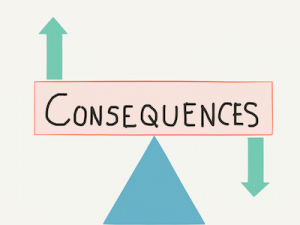She squats more than me and same-day-raw-dawgd the richest d-bag in town last time I gave her lip. But she keeps me purrring with that on-demand space kitty.
I can’t get enough.
But that was yesterday. Today she so mad a snot bubble broke through between snarls. Visible heat waves radiating off syllables.
‘Aren’t you going to say ANYTHING? Typical man.’
We were seated across from each other on the patio of Agave House Mexican restaurant not eating. She looked good in her lacey magenta top and high-waisted jorts. Fresh bang-forward do accentuating her one bulgy orb, which was registering eye-of-Sauron level bulgy with newfound blistering rage.
It was my fault. I had invited her to talk and was now using her vocal cords like a ventriloquist to end what I couldn’t bring myself to. I was choking hard on coward cud.
Truth is, I am mad about her, we both bananas, and I’m scared stiff.
My first idea for dinner was to tell her I felt more than fucking. But in front of her formidable frame and against her floral print top I could find no quarter. She was a combat medic on the battlefield. I was Benedict Arnold’ing my feelings for the familiarity of an old foe.
Without a wound to stitch up, she had assumed the role of assailant. It wouldn’t be long now and I would be alone. Again.
I lowered my eyes from her scathing gaze to origin story flashbacks at the Savored Sip downtown.
Has it only been 8 days?
***

We had been circling orbits for a couple months by then. Unnaturally casual, ‘Hi’s,’ in line for lattes. Snarky stimulants administered as judgey fit checks for dopey NPCs. Long nights made longer with secret longing. Intrusive visions of her nude silhouette, a human eclipse of the dim city lights illuminating the panoramic panes behind her.
Whatever it was it couldn’t be. I was talking to someone. She might be married. Move on, these sparks would only burn.
My relationship fizzled. I needed some time off from dating. Told myself I would use the break to focus on a personal project. But long work sessions require distraction to remain productive. Obviously. It’s why you’re reading this now.
Between sessions, I found her online. Sought her out at her favorite coffee shops. Stored witty one-liners for ready-made conversational elixirs.
There is no hero’s journey without directional tension.
Her marriage was over, had been, in every way possible less the processing. A sad story I won’t tell here but one man’s L is another’s W and she was thirsty.
My dm slide came in hot.

Fourteen messages, two lattes, and three days later we were staining sheets while muffling moans to not awaken sleeping babes.
‘I’m so close,’ audible under pillowcase as right arm swings to the nightstand in what appears to be a violent molestation of an unassuming succulant. She’s digging. Pulls out sea-green silicone cylinder and puts it in.
‘MY dildo not enough?’
I’m enjoying my inadequacy more than I let on. Learning to leverage shame for sexual satisfaction is a superpower for anti-heroes.
‘It’s not a dildo, it’s a vibrator,’ she corrects as genital entanglement achieves harmonic resonance.
‘Got it. I’m the dildo and you cum with an entourage.’
Mid-sex humor is risky, especially around climax, but she cleared me with a smile.
We were off to the races. Triple crown in as many days, finish line after finish line crossed over hot heavy breaths.
I toed the line. kept my shit under wraps. Stuck with the plan. We were just thirsty thoroughbreds at the trough. Nothing more.
Until, in a moment of over-sexed under-slept insanity, ‘I Like you.’ Oxytocin scheming.
‘Excuse me?’
‘I do. I have feelings for you.’ My reply while turning head down and away in anticipation of a left cross sure to strike.
‘You can’t like me. That’s not our arrangement. And you sound like a girl. A bitch.’
I froze, reinforcing her point. She kicked me out and messaged in the morning first thing:
‘When Scooter fucks me in his multi-million dollar mansion he doesn’t cry like a pussy after. But he’s no you.’
***
She broke me for five days with the last four words.
But now here we are at a plateless dinner and I’ll be damned if I don’t eat.
I lift my head from the chin. It’s heavy but obliges. I raise my eyes to hers. She’s talking but I don’t care, it’s my turn. She needs to hear how much I need her.
***
Wish us luck as we write this untold tale as old as time. Two birds, bright wings a flutter, taking helical flight to heaven or hell.
Never in between.




